Review: Dockcase Studio is a portable hub for digital creators that supports the newest memory card standards
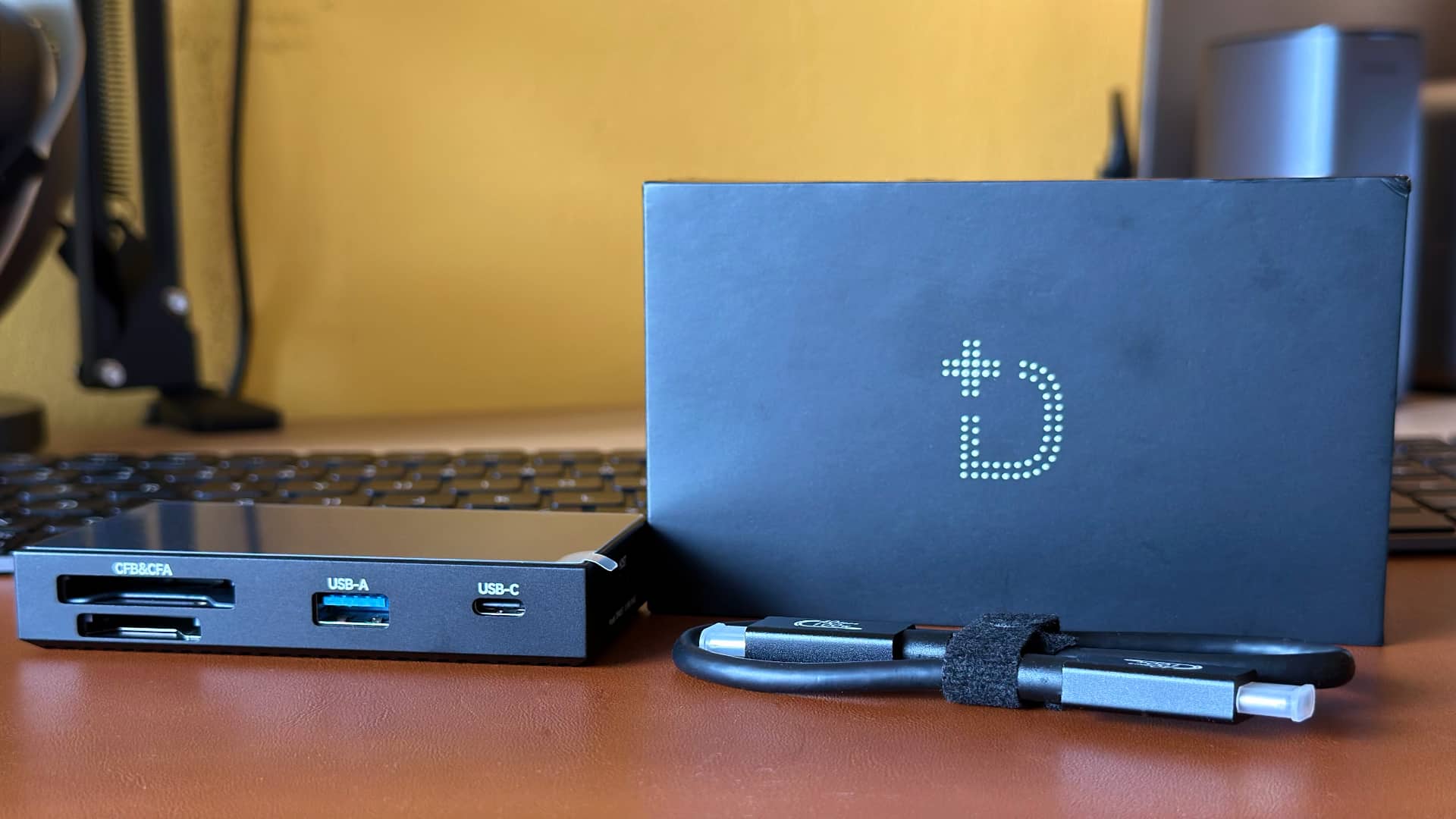
The Dockcase Studio hub packs in USB-C and USB-A ports, HDMI, CFexpress and UHS-II memory card readers, etc. Here’s our hands-on review.
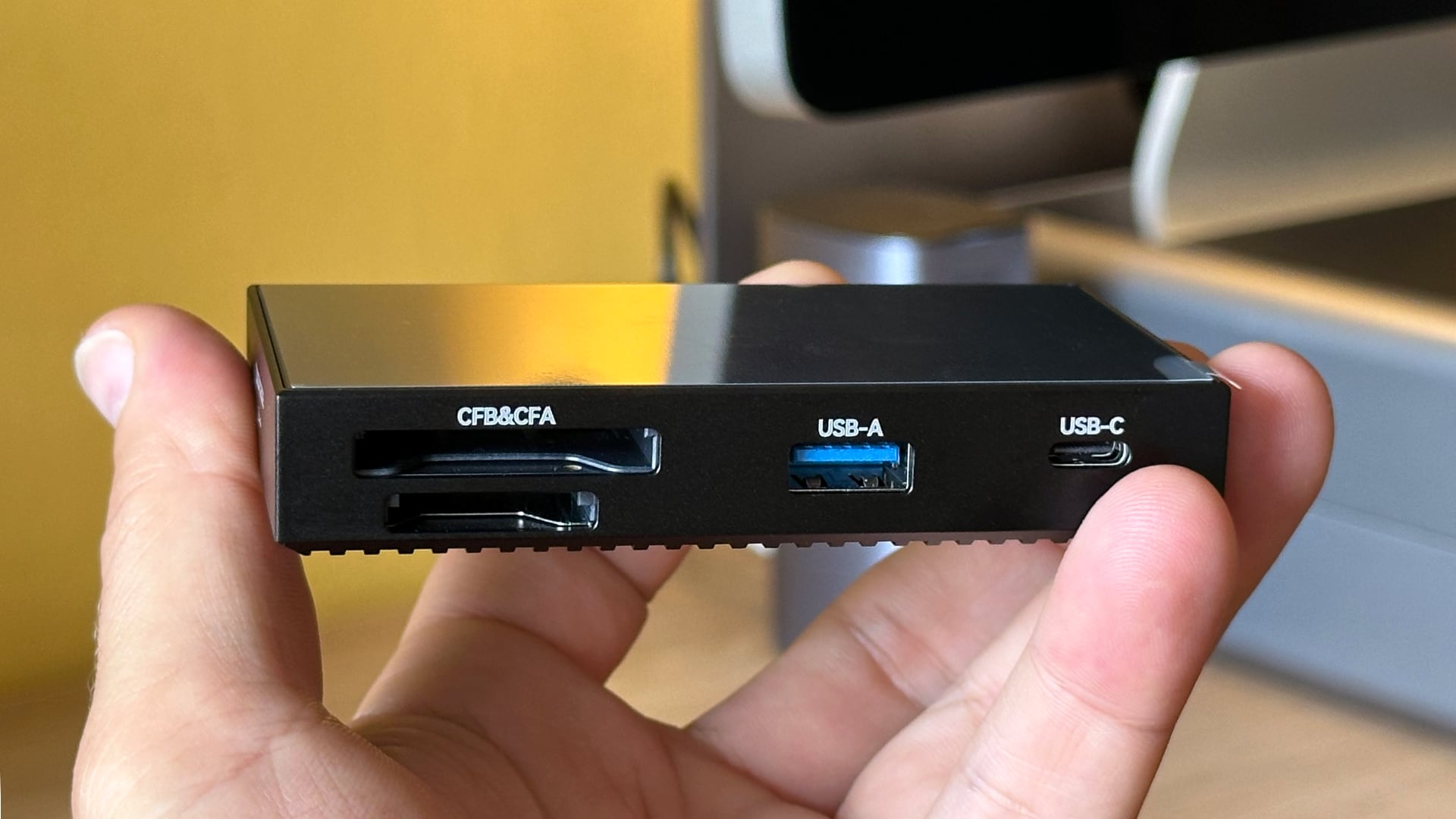
Available to back on Kickstarter, it’s the twelfth crowdfunded project under Dockcase’s belt and yet another one that immediately zoomed well past its funding goal. Backers are treated to early bird pricing shaving 20-30 percent off of the retail price, but hurry up as the campaign is ending in eight days.
Dockcase has sent me a free review unit which I have been testing for a month to bring you these early impressions. I received no other compensation and Dockcase had no editorial input or control over my review.
Review: Dockcase Studio, a compact hub for creatives
The DockCase Studio has a lot going for it:
- 1x Built-in touchscreen with real-time stats
- 1x CFexpress Type A/B memory card reader
- 1x SD/TF UHS-II memory card reader
- 1x HDMI video with 4K resolution at 120Hz
- 1x USB-C 10Gbps port
- 1x USB-A 10Gbps port
- 1x 100W USB-C Power Delivery port
- 1x USB-A
The moment a Dockcase Studio sample landed on my desk, I immediately wanted to order a Mac Studio as it only felt proper to pair this impressive dock with a dream Mac desktop. Instead, I’ve tested it on my MacBook Pro but you’d be making a big mistake assuming that this thing is only for laptops.
Support for the latest memory card standards
If you own a digital camera, then the Dockcase Studio will be right up your alley because you’ll get support for four main card formats found in new cameras.
There’s a built-in reader for SD and microSD (aka TF) memory cards. This ensures compatibility without sacrificing speed as the combined SD/microSD card slot supports UHS-II speeds for up to 312MB/s and up to 2TB capacities.
On top of that, you’ll find a Compact Flash Express (CFExpress) reader which supports Type A (CFe-A) and Type B (CFe-B) cards via the same slot. CFExpress is not commonly found in hubs and no Macs have a built-on CFExpress reader, so this is a big plus for photographers and videographers alike.
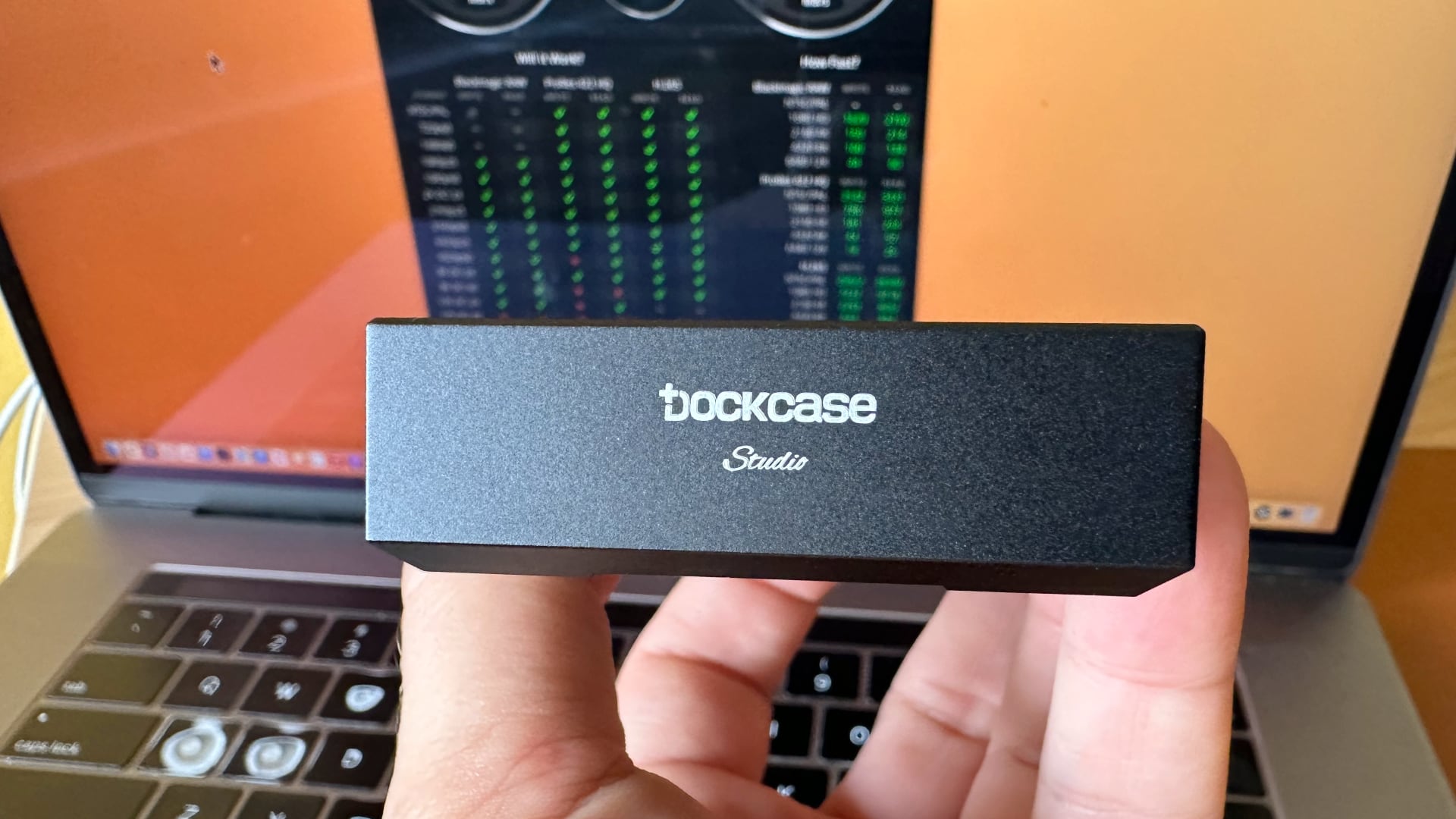 CFExpress takes advantage of the NVM Express protocol over a high-speed PCIe 3.0 interface, which results in a significant speed boost over UHS-II. The difference in speed between SD card and CFExpress is like night and day, with the CFExpress Type A cards supported at 800MB/s and Type B ones at 1GB/s.
CFExpress takes advantage of the NVM Express protocol over a high-speed PCIe 3.0 interface, which results in a significant speed boost over UHS-II. The difference in speed between SD card and CFExpress is like night and day, with the CFExpress Type A cards supported at 800MB/s and Type B ones at 1GB/s.
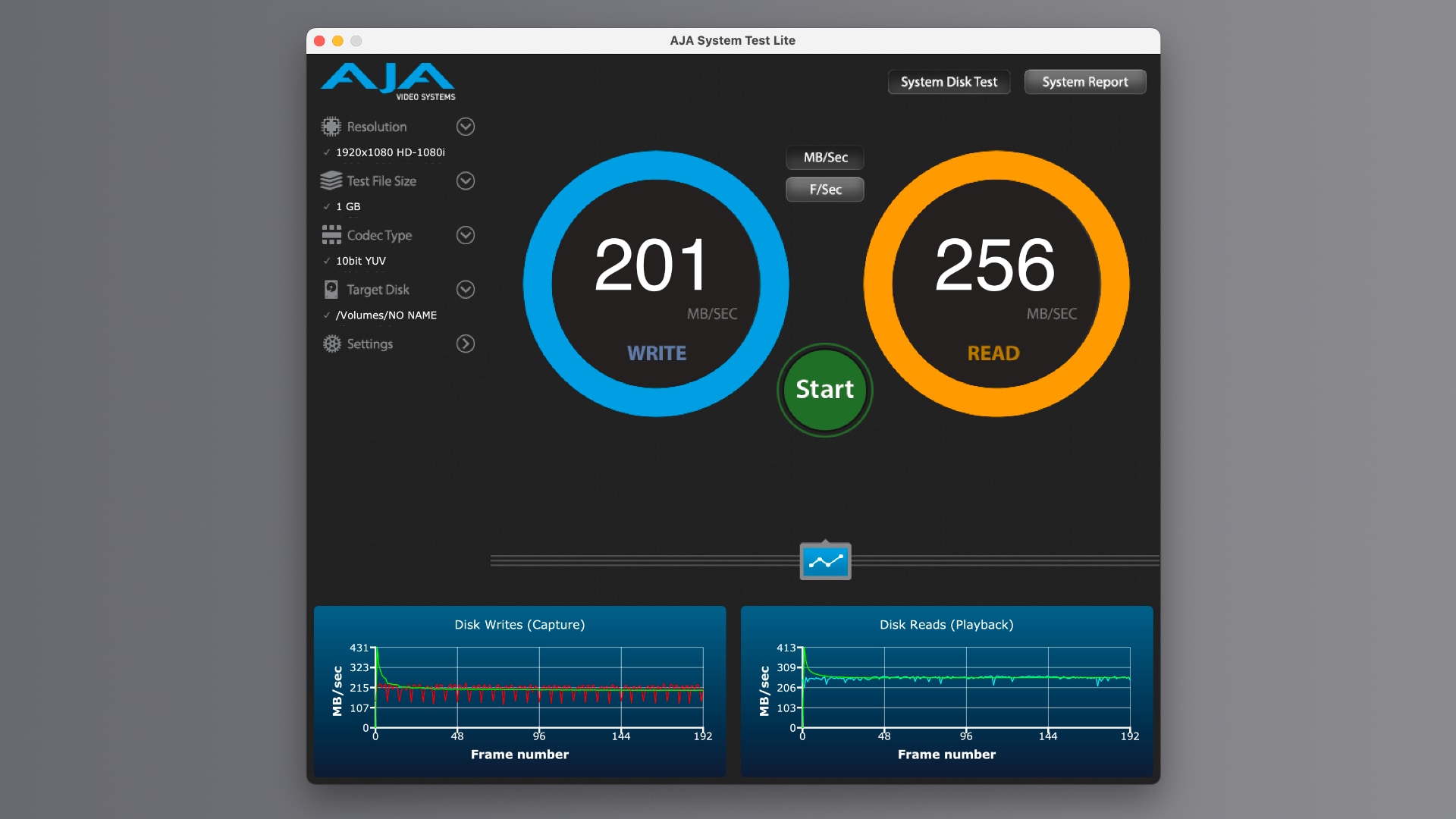 I used the BlackMagic Disk Speed Test and AJA System Test Light apps to test median read and write performance for video editing. My 32-gigabyte Lexar SD memory card achieved the median write speed about 200MB/s, with the read speed comfortably within the 200-256MB/s range. These are very good results and in line with comparable hubs from Sandisk, Ugreen and similar.
I used the BlackMagic Disk Speed Test and AJA System Test Light apps to test median read and write performance for video editing. My 32-gigabyte Lexar SD memory card achieved the median write speed about 200MB/s, with the read speed comfortably within the 200-256MB/s range. These are very good results and in line with comparable hubs from Sandisk, Ugreen and similar.
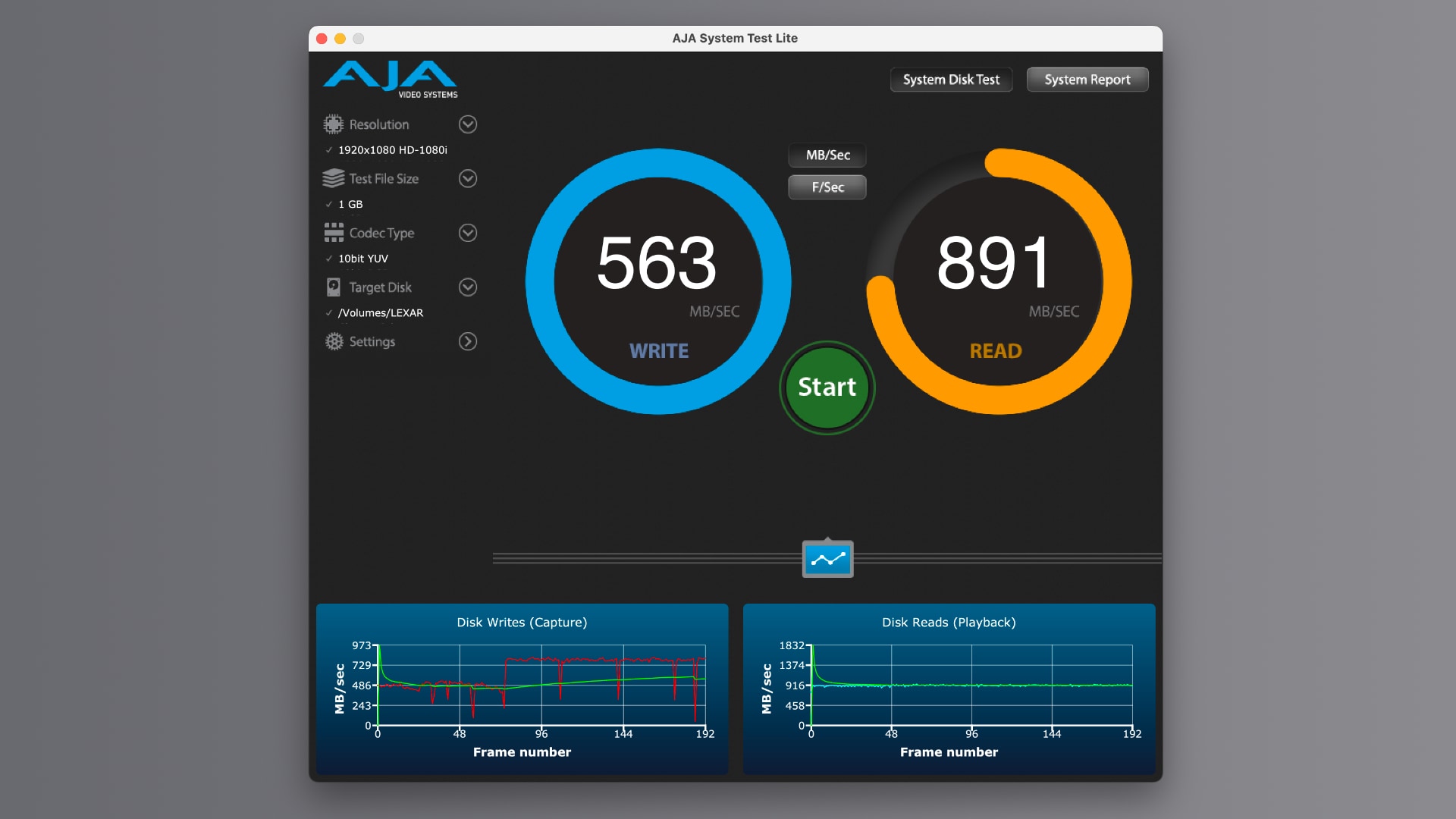 I also bought a 128-gigabyte Lexar CFExpress Type B card capable of read and write speeds up to 1750MB/s and 1300MB/s. Now, I wasn’t expecting to hit those numbers as the hub can hit up to 1000MB/s via the CFExpress card interface.
I also bought a 128-gigabyte Lexar CFExpress Type B card capable of read and write speeds up to 1750MB/s and 1300MB/s. Now, I wasn’t expecting to hit those numbers as the hub can hit up to 1000MB/s via the CFExpress card interface.
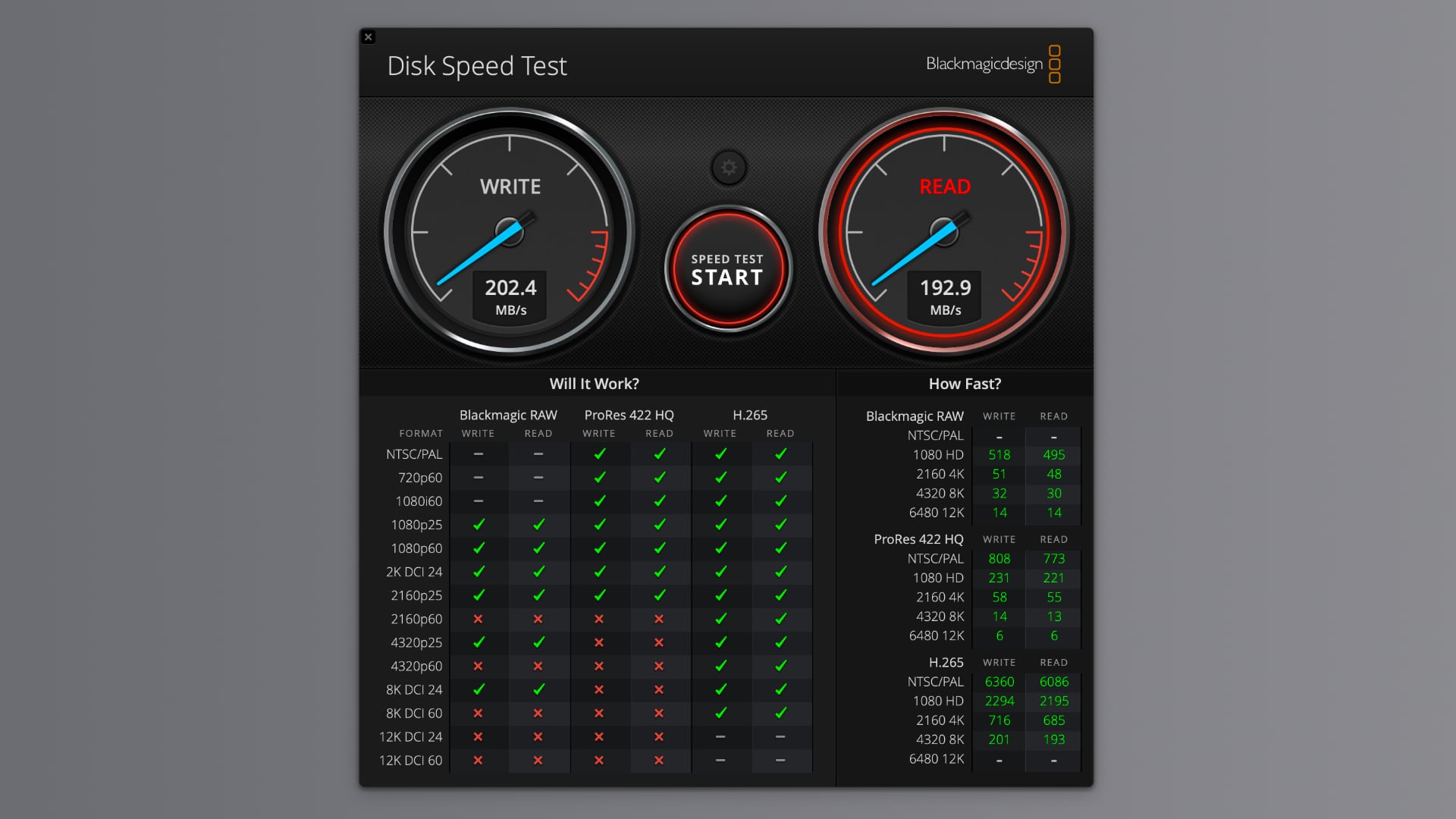 That said, The Dock Case hit the median write speed for this card between 560MB/s and 630MB/s. The median read speed fluctuated between 860-900MB/s. The read speed is more important when importing photographs from a card and the write speed matters when shooting images or recording video with your DSLR.
That said, The Dock Case hit the median write speed for this card between 560MB/s and 630MB/s. The median read speed fluctuated between 860-900MB/s. The read speed is more important when importing photographs from a card and the write speed matters when shooting images or recording video with your DSLR.
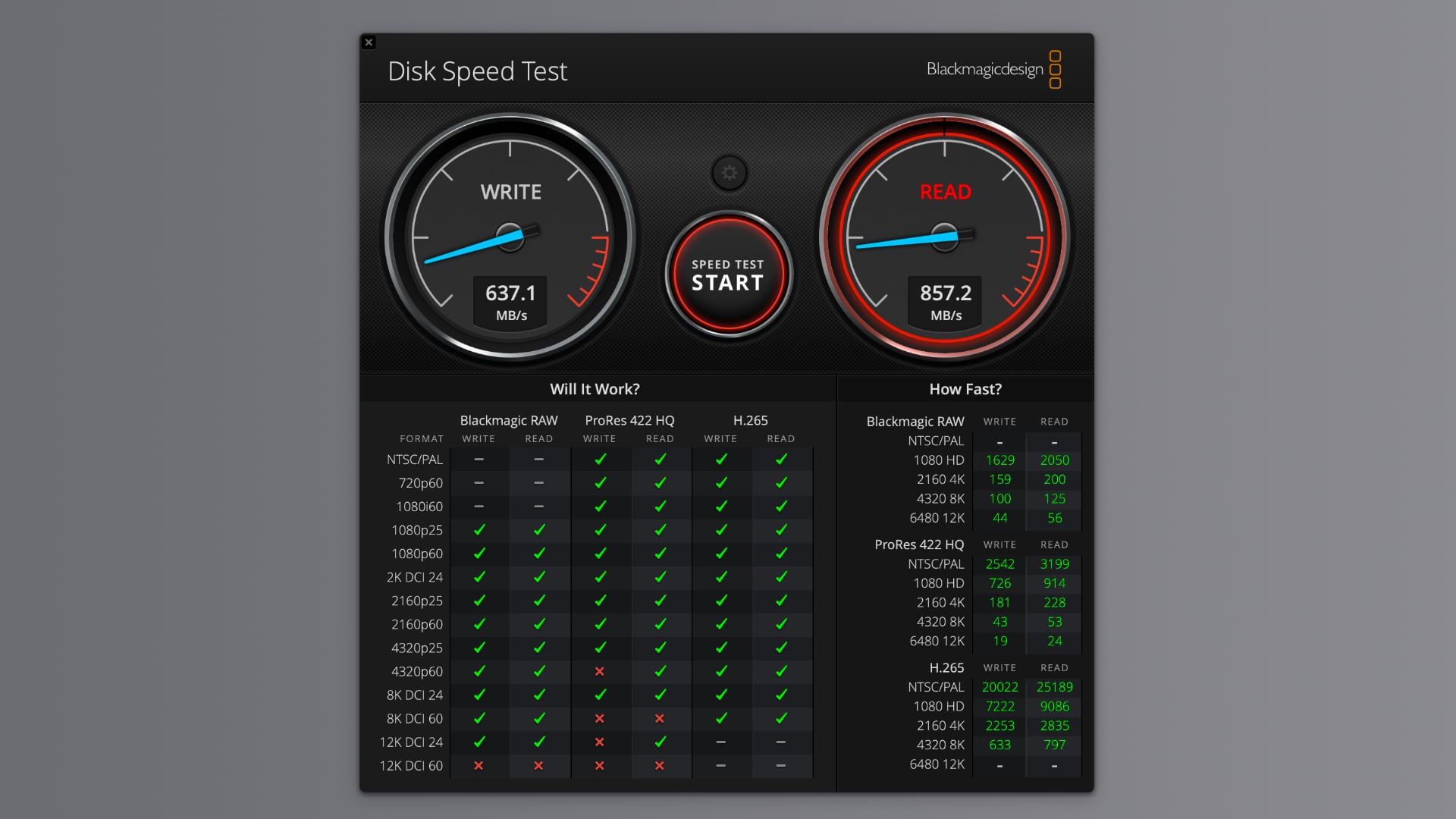 As an impatient type who dreads waiting for a multi-gigabyte photoshoot to finish transferring, I appreciate the inclusion of a speedy CFexpress reader.
As an impatient type who dreads waiting for a multi-gigabyte photoshoot to finish transferring, I appreciate the inclusion of a speedy CFexpress reader.
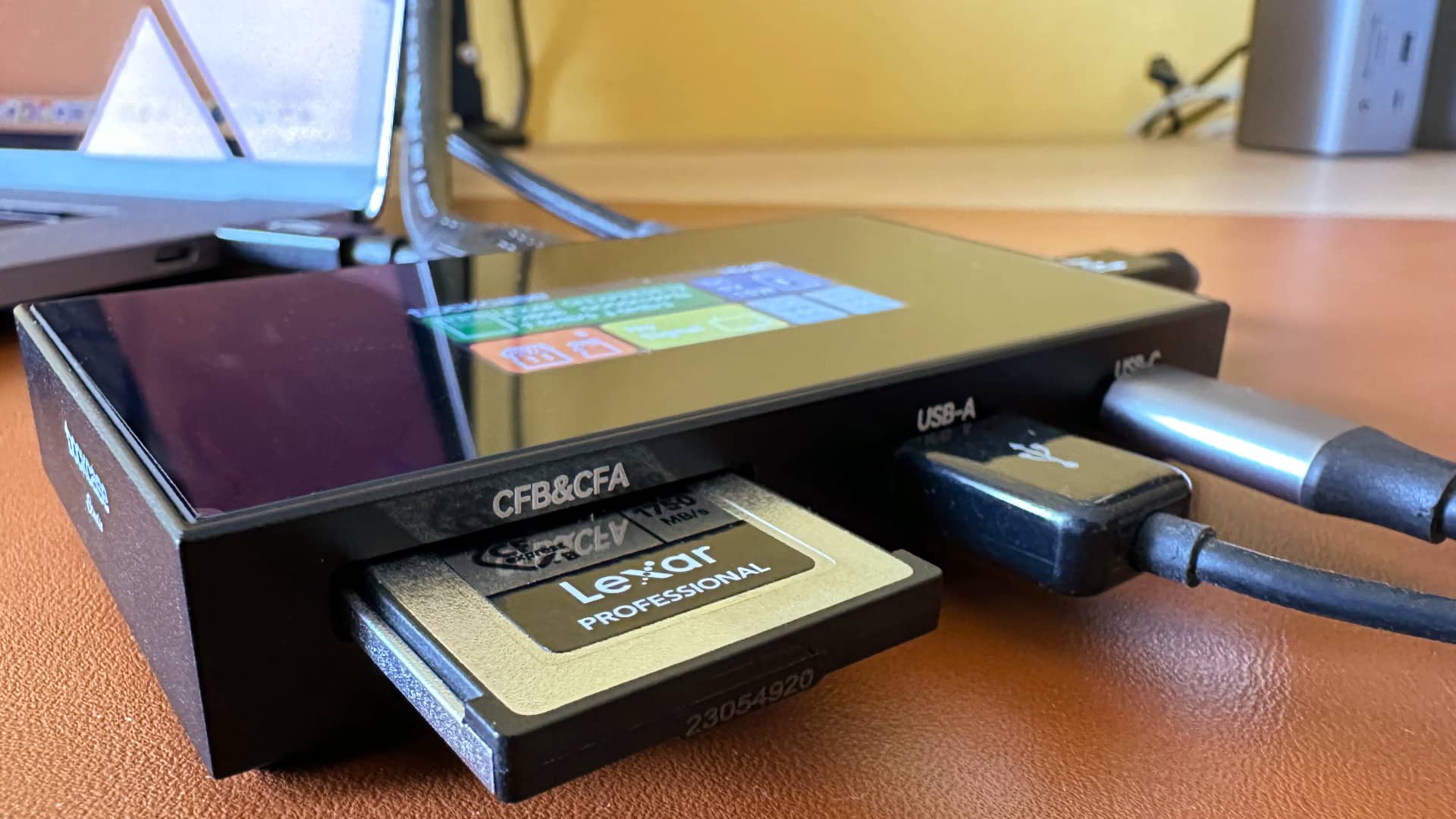 I also tested my review unit with high-speed memory cards from Sandisk, experiencing no compatibility issues whatsoever. I wish I could say the same about some other hubs I tested that exhibited CFExpress issues on macOS.
I also tested my review unit with high-speed memory cards from Sandisk, experiencing no compatibility issues whatsoever. I wish I could say the same about some other hubs I tested that exhibited CFExpress issues on macOS.
Dockcase Studio hub review: USB-C and USB-A ports
The hub provides additional USB-A and USB-C 3.2 Gen 2 ports running at 10 gigabits per second each, with a short high-speed cable capable of support this speed conveniently included in the box. With the Dockcase Studio, you get the highest transfer speeds supported by the standard, and I’ve experienced no slokwndows in data transfers with multiple deices connected to the dock.
I was even happier that the hub is equipped with a USB-A port. I still have legacy accessories like external drives, keyboards and mice that use USB-A. I recharged my Magic Trackpad off of the USB-A port, plugged my wired Apple keyboard into it and even used it to transfer files from my external OWC drive.
Dockcase Studio hub review: HDMI and a built-in display
My MacBook Pro is an all-USB-C model from 2018 so you can imagine I liked that the Dockcase Studio comes with an HDMI port. This lets me connect my Mac to a 4K TV at 120Hz by plugging an HDMI cable from the telly into the dock without using a dongle, which is a big relief. The HDMI port also supports 5K resolution at 60Hz and 8K resolution and 30Hz, but I didn’t have appropriate screens to test them.
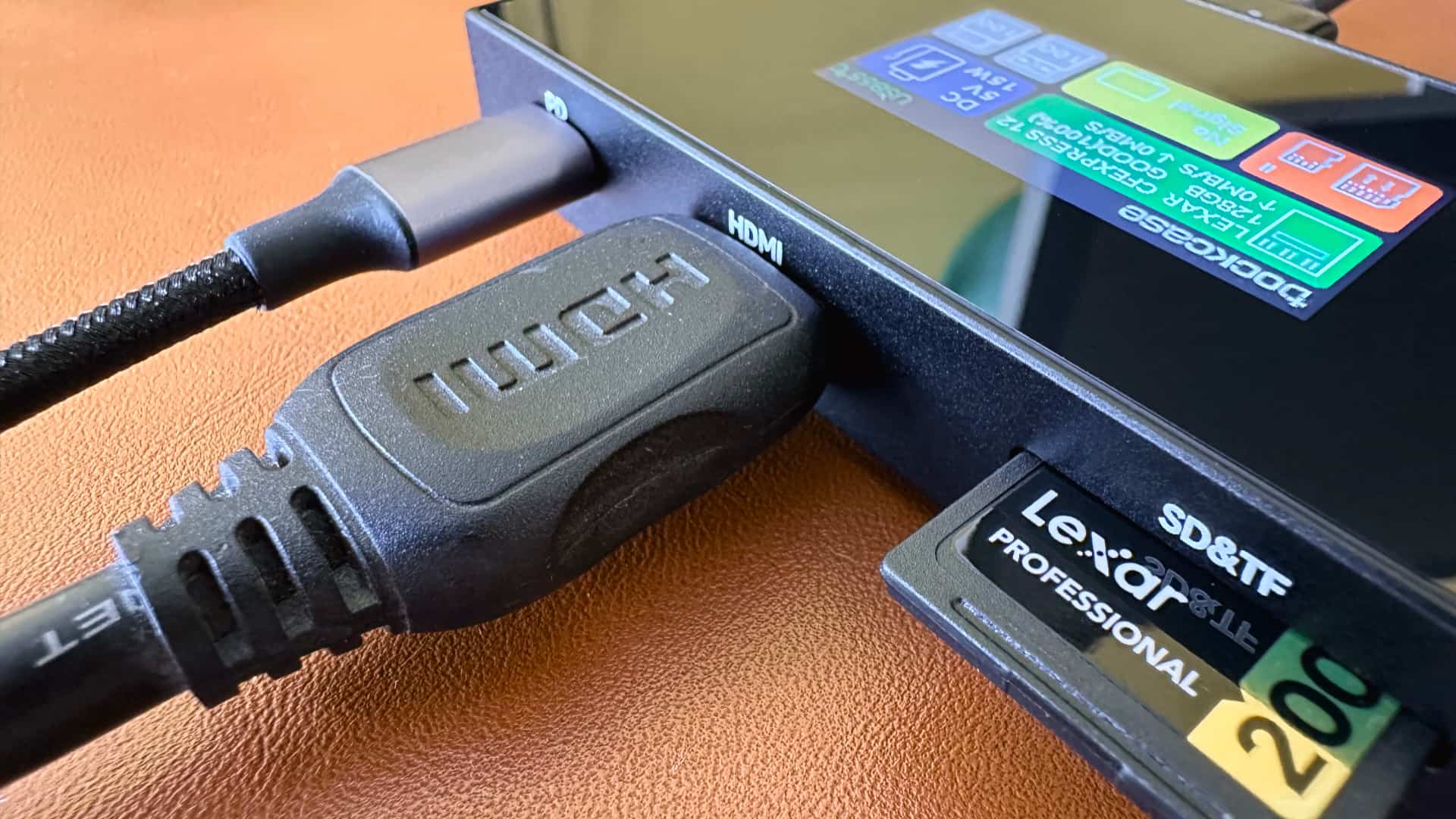 Dockcase Studio integrates an LCD touchscreen that shows loads of real-time information about connected devices, what ports are currently being used, data speeds, HDMI performance, temperature etc. When a CFExpress card is connected, the screen shows crucial health stats like the total read/write throughput, the number of hours used, how many times the card was not ejected properly, etc. These stats are unavailable for SD and SD micro cards.
Dockcase Studio integrates an LCD touchscreen that shows loads of real-time information about connected devices, what ports are currently being used, data speeds, HDMI performance, temperature etc. When a CFExpress card is connected, the screen shows crucial health stats like the total read/write throughput, the number of hours used, how many times the card was not ejected properly, etc. These stats are unavailable for SD and SD micro cards.
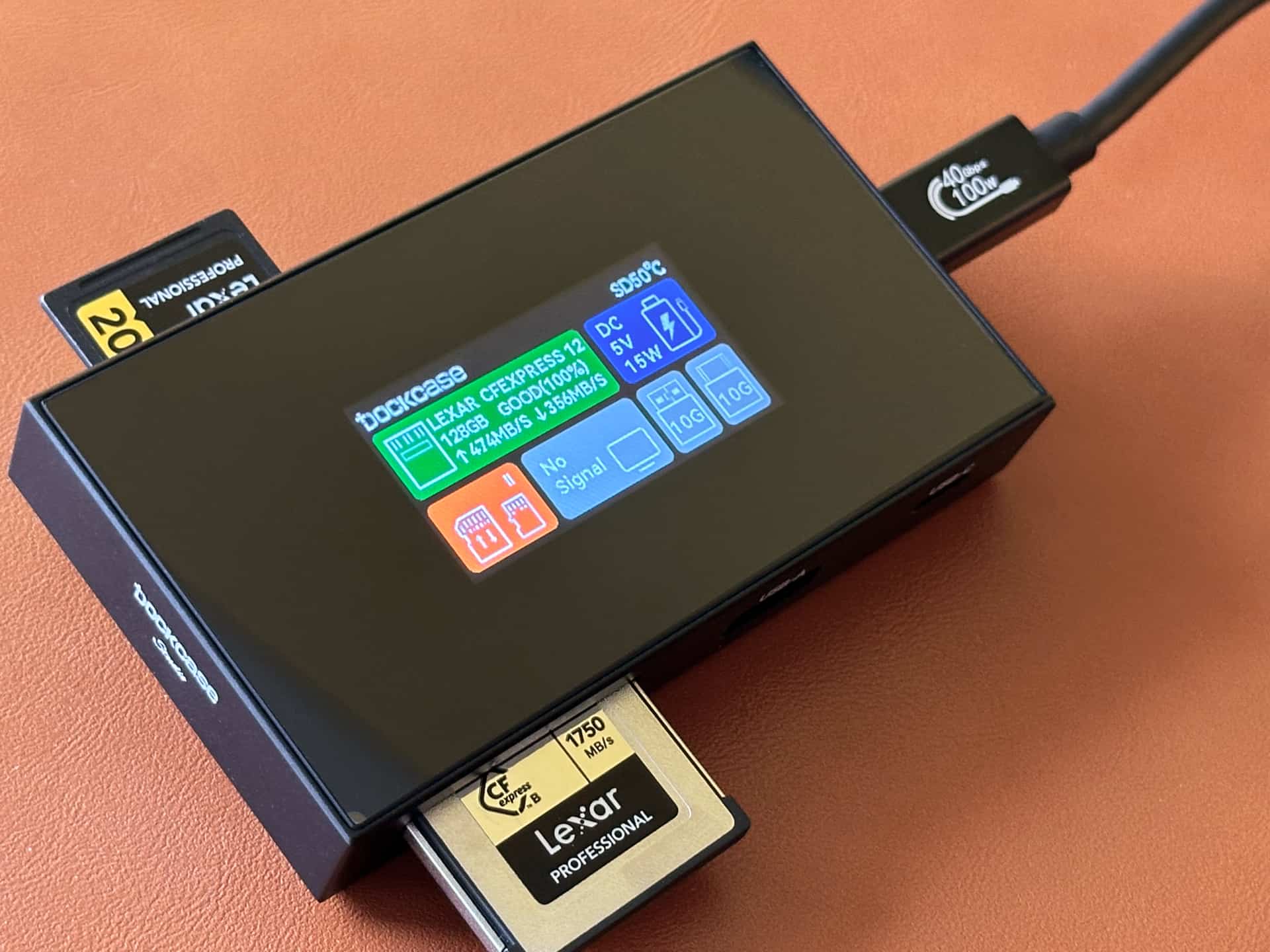 The menus are easy to navigate, and one option really stood out for me and that is switching between 5W and 25W for the hub itself and any connected devices. If 75W is enough to power your computer, you’ll want to select 25W for the dock. Otherwise, leave this setting at 5W for the dock and peripherals as that’ll give you 95W to power your laptop.
The menus are easy to navigate, and one option really stood out for me and that is switching between 5W and 25W for the hub itself and any connected devices. If 75W is enough to power your computer, you’ll want to select 25W for the dock. Otherwise, leave this setting at 5W for the dock and peripherals as that’ll give you 95W to power your laptop.
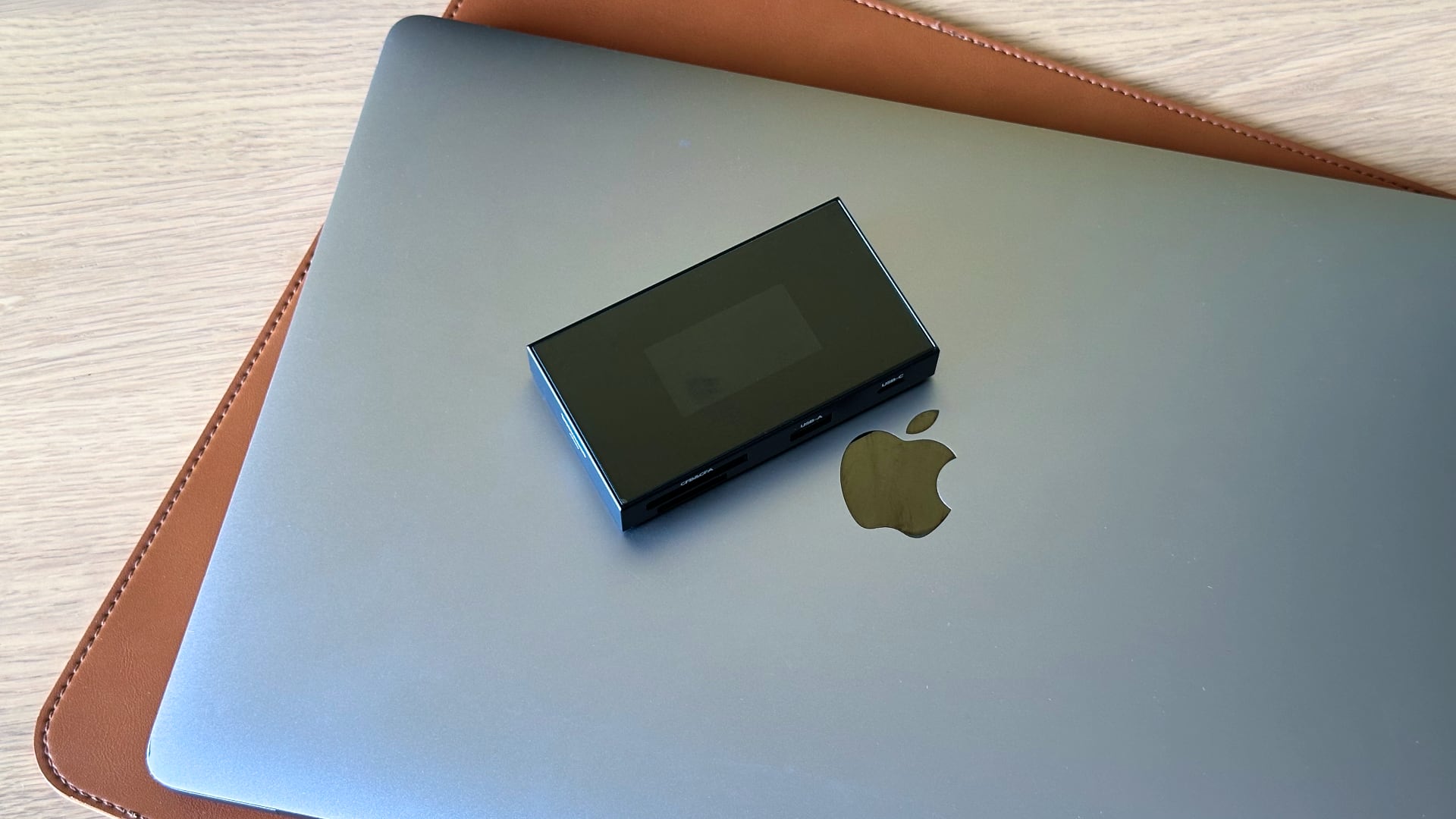 This is the setting that keeps my 15-inch MacBook Pro running and charging at the same time. When I need more power for connected accessories, I switch to 75W for the host. My Dockcase Studio is plugged into power via its 100W USB-C port. It comes with Power Delivery support for fast-charging support and essential safety features like overcharge protection.
This is the setting that keeps my 15-inch MacBook Pro running and charging at the same time. When I need more power for connected accessories, I switch to 75W for the host. My Dockcase Studio is plugged into power via its 100W USB-C port. It comes with Power Delivery support for fast-charging support and essential safety features like overcharge protection.
Dockcase Studio hub review: A must-have for content creators
The Dockcase Studio changes the game for content creators, photographers, videographers and power users who get the best of both worlds: an SD and micro SD reader for wide compatibility and a high-speed CFExpress A/B reader in one convenient device.
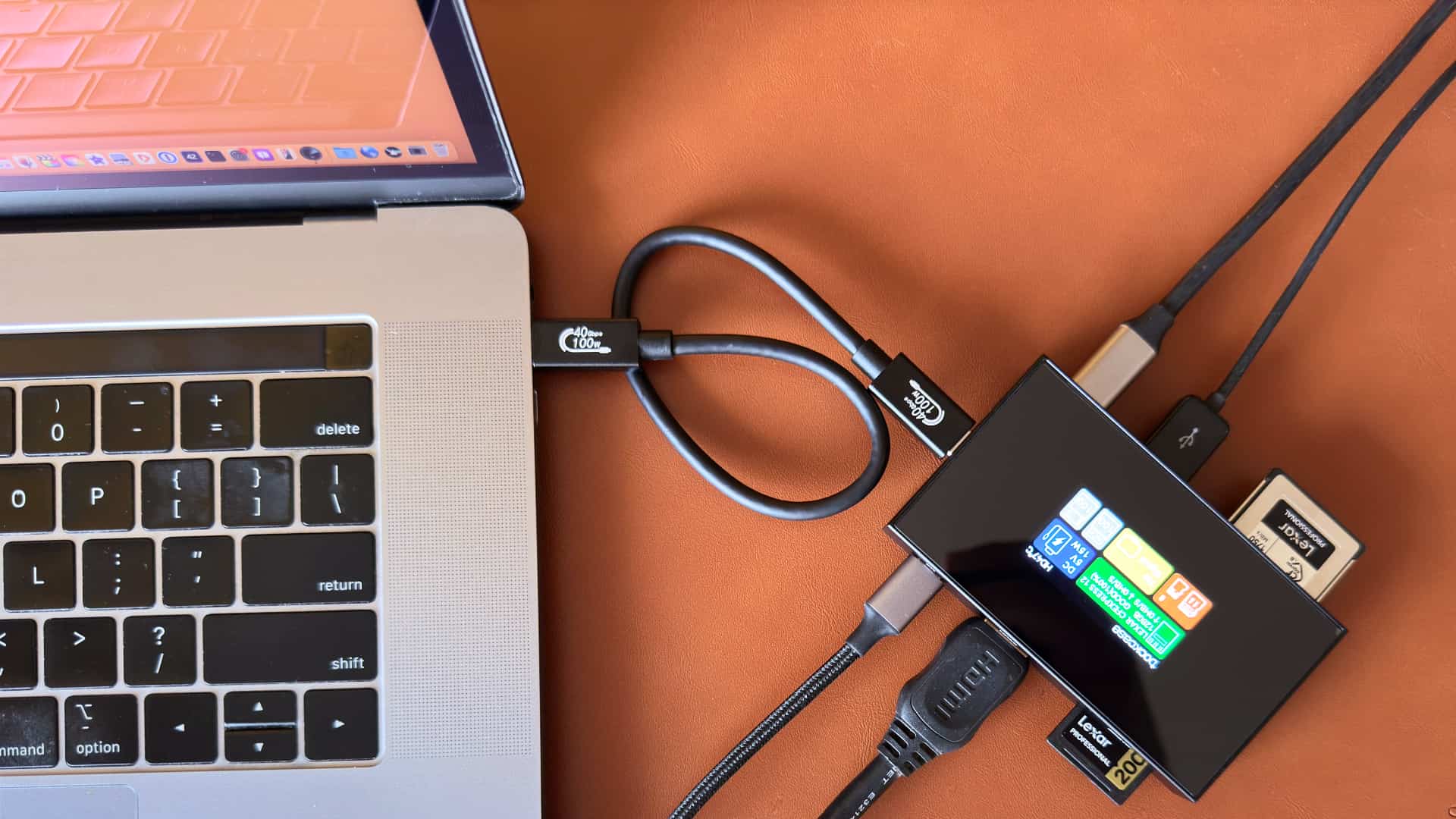 But it doesn’t stop there. This is also your dock for older peripherals and a second monitor. And because it’s based on the ubiquitous USB-C protocol, it works with all the major platforms like macOS, Windows, Linux, iOS, iPadOS, Harmony, etc.
But it doesn’t stop there. This is also your dock for older peripherals and a second monitor. And because it’s based on the ubiquitous USB-C protocol, it works with all the major platforms like macOS, Windows, Linux, iOS, iPadOS, Harmony, etc.
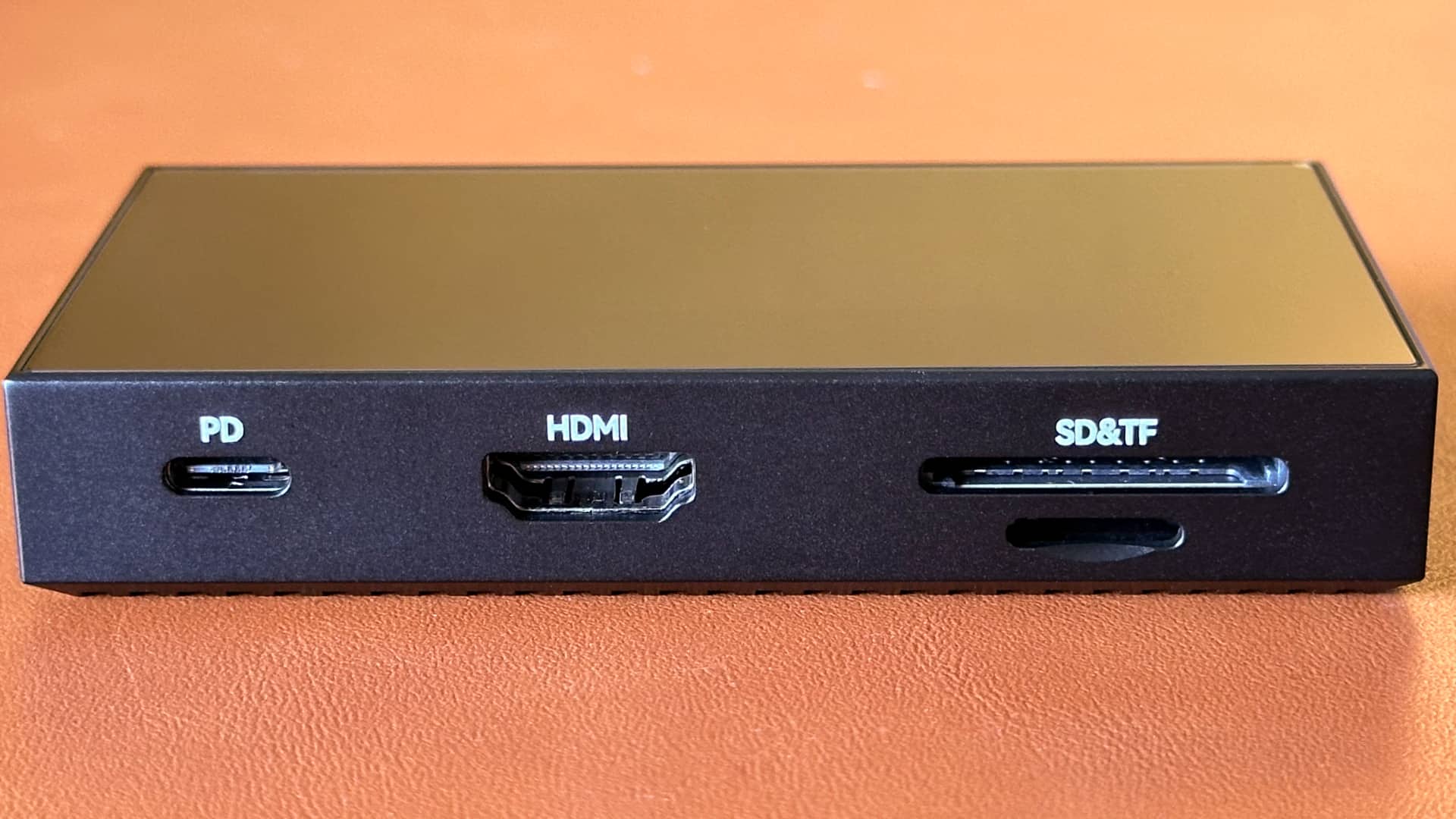 All that convenience, power and utility come at a price: The Dockcase Studio costs $200, which is at the high-end of the market but also the most affordable dock with CFe slots we could find. The closest alternative which supports CFexpress is OWC’s Thunderbolt Dock Pro, which is nearly an extra $200.
All that convenience, power and utility come at a price: The Dockcase Studio costs $200, which is at the high-end of the market but also the most affordable dock with CFe slots we could find. The closest alternative which supports CFexpress is OWC’s Thunderbolt Dock Pro, which is nearly an extra $200.
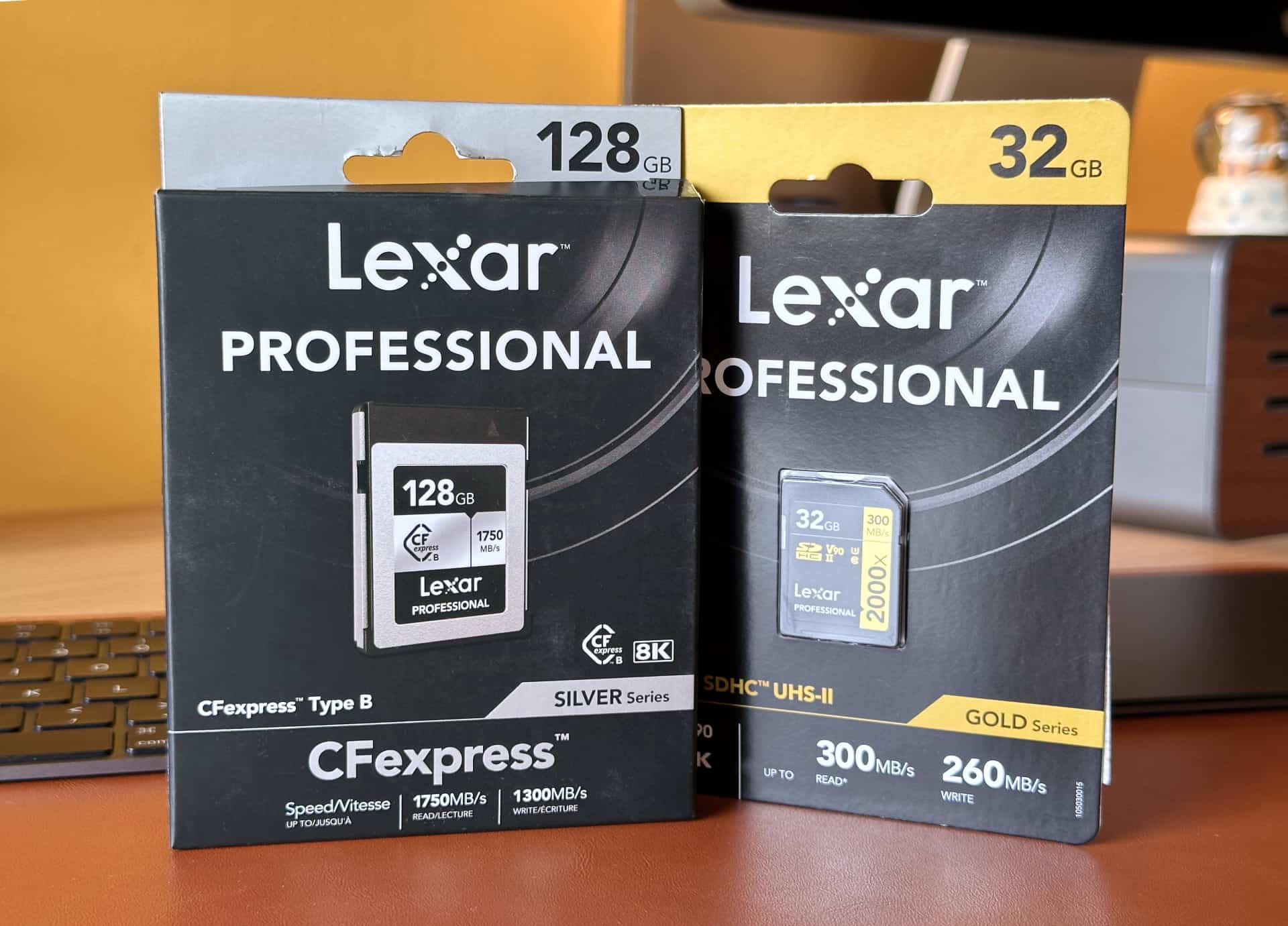 If you’re on the fence, keep in mind that the DockCase Studio also brings you an additional USB-A port, HDMI video output and passthrough charging. To our knowledge, this is the only sub-$200 hub that supports both CompactFlash Express card types. And at just 118 grams, the Dockcase Studio can go anywhere with you.
If you’re on the fence, keep in mind that the DockCase Studio also brings you an additional USB-A port, HDMI video output and passthrough charging. To our knowledge, this is the only sub-$200 hub that supports both CompactFlash Express card types. And at just 118 grams, the Dockcase Studio can go anywhere with you.
Dockcase Studio hub review: Pros and cons
Pros:
- SD and CFExpress memory card readers in one device
- The highest USB speeds with 3.2 Gen 2 support
- The included cable supports the highest USB speeds
Cons:
- The included USB-C cable is a bit short
- No internal storage for memory card backup
- A bit high price
Dockcase Studio hub review: Pricing and availability
You can back the Dockcase Studio Smart USB-C Hub 8-in-1 on its Kickstarter page, with early bird pricing bringing the hub from $200 down to $160, saving you $40.
If you opt for Dockcase Pack, you’ll get two hubs with a 30 percent discount, paying $279 instead of $398 (saving you a cool $199). Various add-ons are available, too, like a pouch and an HDMI cable.
The accessory is scheduled to start shipping in August, with a 240W 40Gbps braided USB-C cable included in the box. When the campaign wraps up, the hub will be available to order from the DockCase website.
We tested other Dockcase products, including a Photography Edition of its funky pocket-sized external storage enclosure which accepts tiny M.2 NVMe SSD drives, along with an Explorer Edition of its 7-in-1 USB hub.
Source link: https://www.idownloadblog.com/2024/06/26/dockcase-studio-smart-usb-c-hub-8-in-1-review/



Leave a Reply